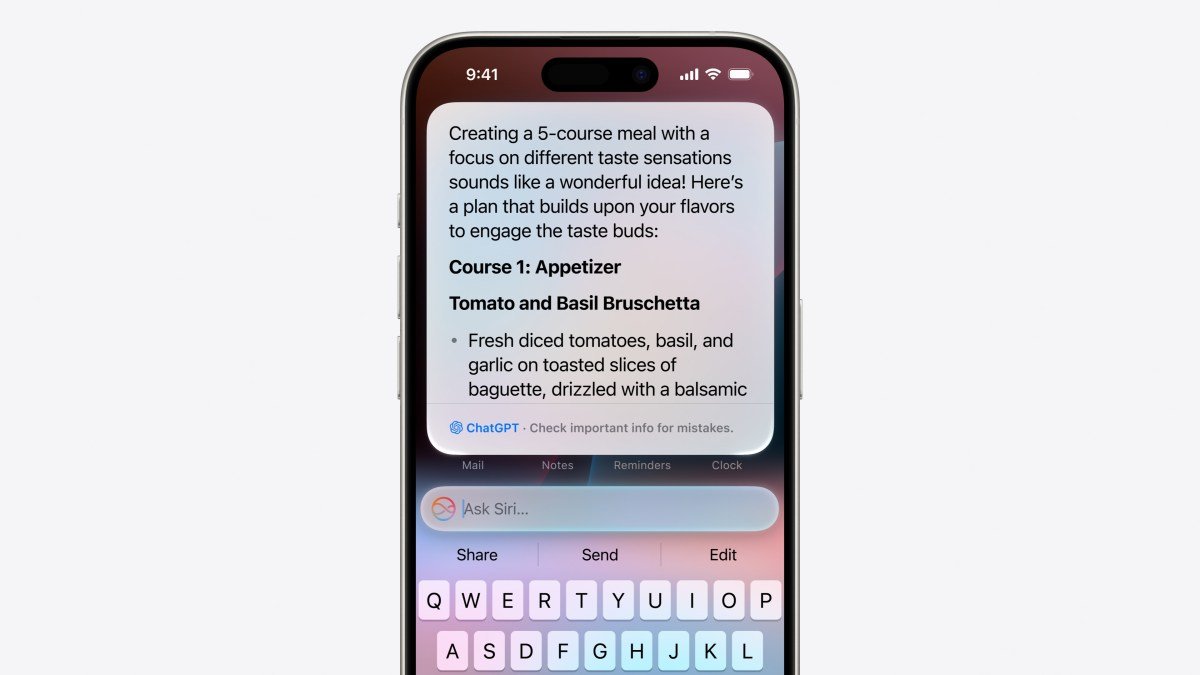It seems that Elon Musk is not a fan of the latest announcement from Apple at WWDC 2024. In fact, he is threatening to ban iPhones from his companies due to the newly announced OpenAI integrations.
In a series of posts on X, Musk, who is known for being the CEO of Tesla, SpaceX, and xAI, stated that he would not allow Apple devices on his premises if the company integrates OpenAI at the OS level. He even went as far as suggesting that visitors would have to leave their devices at the door and have them stored in a Faraday cage.
“If Apple integrates OpenAI at the OS level, you can no longer use your iPhone on my premises.”
However, it seems that Musk may not fully understand the relationship between Apple and OpenAI. While both companies have stated that user privacy is a top priority, Musk’s response implies that he believes OpenAI is deeply integrated into Apple’s operating system, potentially compromising personal and private data.
Apple had previously announced that in its latest iOS update, users will be able to ask Siri questions and if the assistant thinks ChatGPT can help, it will ask for permission to share the question and provide an answer directly. This integration allows for a seamless experience without the need to open the ChatGPT app. The same applies for photos and documents that users want to send to ChatGPT.
Musk, on the other hand, believes that OpenAI should remain as a standalone app rather than being integrated with Siri.
“Then leave it as an app. This is bullshit.”
In response to a post from Sam Pullara, VC and CTO at Sutter Hill Ventures, who stated that users are asked for permission on a per-request basis and that OpenAI does not have access to the device, Musk replied, “Then leave it as an app. This is bullshit.” Pullara had previously mentioned that the integration of ChatGPT is similar to how the app operates currently, with on-device AI models being either Apple’s own or those using Apple’s Private Cloud.
Musk also responded to a post from YouTuber Marques Brownlee, who further explained the capabilities of Apple Intelligence. Musk’s response implied that Apple’s emphasis on privacy while handing over user data to a third-party AI that they don’t fully understand is not truly protecting privacy.
“Apple using the words ‘protect your privacy’ while handing your data over to a third-party AI that they don’t understand and can’t themselves create is not protecting privacy at all!”
Apple also announced another integration that allows users to access ChatGPT throughout their writing tools via a “compose” feature. For example, users can ask ChatGPT to write a bedtime story for their child within a document. They can also ask for image recommendations in various styles to complement their writing. These features provide users with free access to ChatGPT without the hassle of creating an account, which is great news for OpenAI, as they will soon have a massive influx of requests from Apple users.
While Apple users may not fully comprehend the privacy concerns, Musk seems to be taking advantage of this lack of understanding to make his complaints known. If users were able to choose their preferred AI bot for Siri requests and writing assistance, Musk may not have such strong objections to the integration.
In its announcement, Apple clarified that user requests and information are not logged. However, ChatGPT subscribers can connect their account and access paid features directly within Apple’s AI experiences.
“Of course, you’re in control of when ChatGPT is used and will be asked before any of your information is shared. ChatGPT integration will be coming to iOS 18, iPadOS 18, and macOS Sequoia later this year.” – Craig Federighi, Apple SVP of Software Engineering.
OpenAI also reiterated a similar statement in its blog post, assuring users that their requests are not stored and their IP addresses are obscured. Additionally, users have the option to connect their ChatGPT account and have their data preferences apply under ChatGPT’s policies, which is optional and requires opt-in from the user.









[…] is finally releasing its highly anticipated Gemini Nano AI model to Pixel 8 and 8a users this month, after teasing its arrival back in March. The June Pixel drop includes a range of new […]